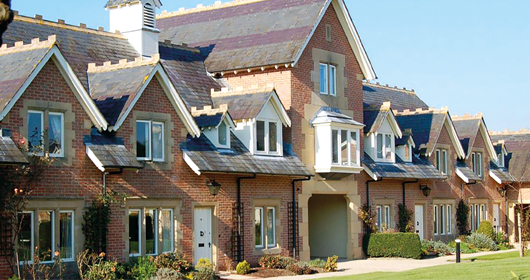Conserving our Heritage
Go back Properties on Cognatum estates have always been designed to complement their surroundings. Often built with local materials, stone or flint or brick, with architecture inspired by the local vernacular, they are designed as a cohesive whole.
Properties on Cognatum estates have always been designed to complement their surroundings. Often built with local materials, stone or flint or brick, with architecture inspired by the local vernacular, they are designed as a cohesive whole.
From the hanging tiles at Crittles Court to the timber-clad barn at Church Place, our estates reflect and enhance their surroundings. It is for this reason that applications to make a change to the exterior of a property must be approved by Cognatum.
A common request that Cognatum receives is for the use of plastic (or uPVC), and so called “composite” building components, such as windows, conservatories and doors. Cognatum’s policy is to retain the original choice of materials. Where owners wish to replace their windows, Cognatum will help owners identify high quality and high performing timber replacements. These are widely available and have all the benefits claimed by the plastic window industry in terms of security and energy efficiency, whilst maintaining the highest standards of appearance and quality.
uPVC discolours over time, and can become brittle, while plastic still requires regular cleaning, is almost impossible to repair, and there are many reports of problems with fittings such as handles and hinges. Well specified and well-maintained timber is as long-lasting as its plastic counterpart.
Another consideration must be one of the environment. The difficulty of recycling uPVC means that 97% of windows end up in landfill, and the manufacture of uPVC windows uses eight times more energy than timber windows, and involves the production of nearly 50% the hazardous gases that the government has targeted for elimination including the carcinogen benzene.
Recognising the importance of heritage maintains the beauty of Cognatum properties and estates and protects owners’ property values.